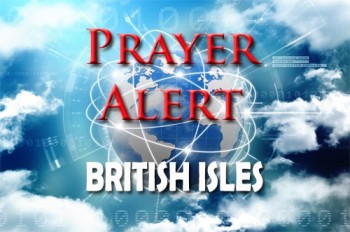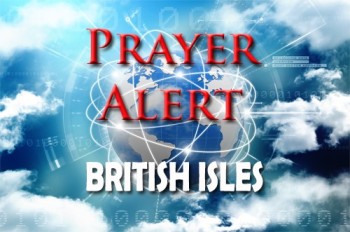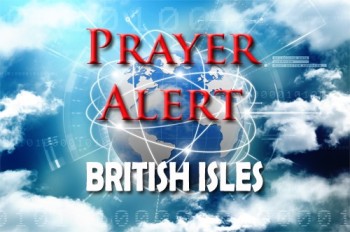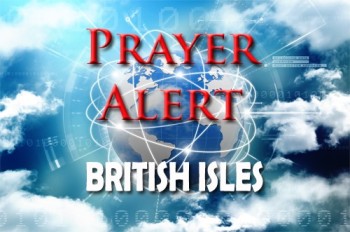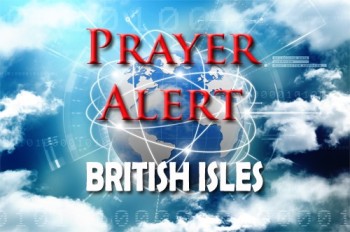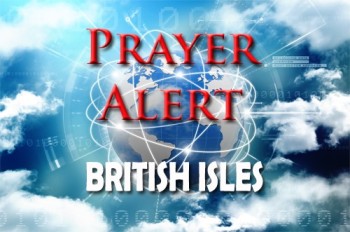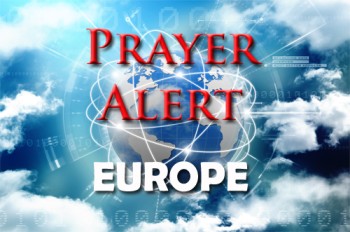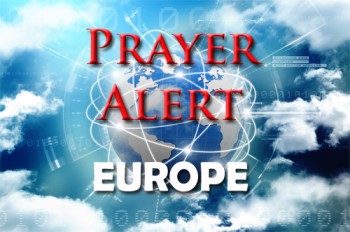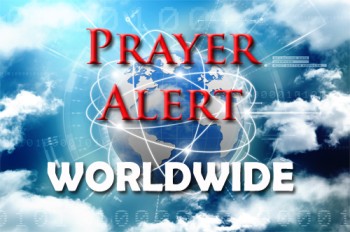
Chinese mega-embassy approved by Government despite security concerns
The Government has approved plans for a large new Chinese embassy near the Tower of London, ending years of debate over security concerns. The site, purchased by China in 2018 for over £200 million, would become the largest Chinese embassy in Europe. Ministers say national security has been their foremost consideration, stressing that intelligence agencies were involved throughout the process and that extensive mitigation measures are in place. However, critics across the political spectrum have condemned the decision. Conservative, Liberal Democrat, and Reform UK figures argue the embassy’s size and location could increase the risk of espionage and intimidation, particularly toward dissidents living in the UK. MI5 has acknowledged that security risks cannot be entirely eliminated, though it judged the safeguards to be proportionate. Supporters of the decision say approving the embassy reflects pragmatic engagement with a major global power and helps maintain diplomatic dialogue on trade, security, and human rights. Opponents warn it sends the wrong signals about Britain’s willingness to stand firm on national security and democratic values.
House of Lords backs ban on social media for under-16s
Momentum is growing in parliament for a ban on under-16s using social media, after the House of Lords backed a key amendment to the Children’s Wellbeing and Schools Bill. The proposal would require social media platforms to implement highly effective age-verification systems within a year of the law passing. While the Government initially resisted an outright ban, pressure from opposition parties, bereaved parents, charities, and Labour backbenchers has softened its stance. Many peers cited evidence of harm to children’s mental health, wellbeing, and development, sharing personal testimonies and research on the risks of excessive screen use. With similar restrictions already introduced in Australia, ministers are now consulting on how a UK ban might work in practice. The amendment now returns to the House of Commons, where overturning it could prove politically difficult. Government statements suggest action is increasingly likely, with a focus on helping children develop healthier relationships via phones and social media, while balancing evidence, parental concerns, and expert advice. A ban in some form now appears almost inevitable.
Inflation rises for first time in five months - but one-off factors blamed
UK inflation has risen for the first time in five months, increasing to 3.4% in the year to December. The rise, though higher than expected, is widely attributed to temporary factors rather than a sustained upward trend. The Office for National Statistics said higher airfares over the Christmas and New Year period were a major contributor, alongside increased tobacco prices following a Budget tax rise. Food prices also edged up, notably for bread, cereals, and vegetables, adding pressure on household budgets. Despite the increase, analysts believe inflation is likely to fall again in the coming months. The Bank of England, which ended 2025 by cutting interest rates to 3.75%, is expected to proceed cautiously when it meets in February, with gradual cuts anticipated later in the year. The Government says reducing the cost of living remains a priority, while critics blame high taxes and borrowing for continued pressure on families. Compared with European neighbours, UK inflation remains relatively high, though forecasts suggest a decline is likely soon.
Government launches £15bn Warm Homes Plan
The Government has launched a £15 billion Warm Homes Plan aimed at expanding solar power, heat pumps, and other green technologies across households over the next five years. The scheme seeks to triple the number of homes with solar panels while increasing uptake of low-carbon heating. It includes a mix of grants and low or zero-interest loans, available regardless of household income. The Boiler Upgrade Scheme will be extended until 2029/30, offering grants of up to £7,500 for air-source heat pumps. An additional £600 million has been allocated to fully fund solar panels and battery storage for low-income households. It is estimated that combining solar, battery storage, and heat pumps could save an average household up to £1,300 a year. The plan is also expected to boost demand for skilled installers, creating opportunities for green-tech businesses and workforce training. Ministers say the programme supports decarbonisation, energy security, and cost-of-living relief, though experts stress the importance of improving insulation alongside new technologies.
MPs debate removal of immunity provision from new legislation
MPs are debating plans to remove the immunity provision from legislation addressing unresolved crimes from the Northern Ireland Troubles. The Government is seeking approval for an order to overturn elements of the previous Legacy Act, including a scheme that would have granted immunity from prosecution to individuals involved in Troubles-related offences in exchange for cooperation with a truth recovery body. That scheme was ruled unlawful and never implemented. Northern Ireland secretary Hilary Benn said the changes are necessary to restore trust among victims’ families and communities who strongly oppose immunity for those responsible for violence and murder. The order would also lift restrictions on bringing new civil claims, reinstating the right of families to seek justice through the courts. In response to concerns among veterans’ groups that this could expose former members of the armed forces to repeated or unfair legal action, the Government intends to introduce safeguards for veterans, including limits on reinvestigation, health protections, anonymity provisions, and alternative ways of giving evidence.
Incoming Archbishop defends £100m slavery reparations fund
The incoming Archbishop of Canterbury, Sarah Mullally, has defended the CofE’s £100 million slavery reparations fund amid growing political and internal opposition. Writing to MPs and peers calling for the plan to be scrapped, she said the Church must address its historic links to African chattel slavery with honesty, responsibility, and Christian integrity. The fund is intended to provide seed funding for community projects and enterprises serving those affected by the legacy of slavery. Critics, including several Conservative MPs, argue the money should instead support parish ministry, church buildings, and historic records, warning of legal and financial risks. Dame Sarah responded that the initiative does not reduce parish funding, noting that £1.6 billion has been committed to parishes over the next three years. However, polling suggests significant concern among churchgoers, with many saying parish ministry should take priority and warning they may redirect giving if the fund proceeds.
Greenland: Trump drops tariffs threat after meeting Rutte
Tensions between the USA and Europe eased after Donald Trump reversed his threat to impose tariffs on European countries over Greenland and ruled out using force to seize the territory. Speaking in Davos, Trump said a new ‘framework’ had been agreed with NATO secretary-general Mark Rutte, focussing on Arctic security, minerals, and defence cooperation. While details remain vague, the move paused a looming trade dispute that had shaken transatlantic relations and raised fears about NATO’s future. Denmark welcomed the de-escalation but reaffirmed that Greenland’s sovereignty is non-negotiable. European leaders cautiously praised the shift, seeing it as a step away from confrontation. Analysts, however, do not believe that trust can be fully restored, warning that relations may stay fragile, with trade and security tensions ready to resurface.
Spain: at least forty dead after high-speed train crash
Spain has entered a period of deep national grief following its deadliest rail disaster in more than a decade. A high-speed collision near Adamuz in southern Andalusia claimed at least 41 lives, with fears that the toll could still rise as recovery work continues. Two trains derailed on 18 January after one strayed into the path of another, and investigators are carefully examining the scene, focusing on a carriage believed to have derailed first. The transport minister said that experts were extremely surprised because it happened on a flat stretch of track which had been renovated in May. Mechanical failure is being considered; sabotage, human error, and excessive speed have been ruled out. Local residents were among the first to help the injured, facing scenes of profound trauma. As families wait anxiously for news and many remain in hospital, the country is observing days of mourning, united in sorrow and still searching for answers.
Ukraine: Russian air strikes cause widespread energy loss
As Ukraine is enduring one of the harshest winters of the war, Russian strikes continue to target the country’s energy infrastructure. In Kyiv alone, around four thousand buildings remain without heating and nearly 60% of the city has lost electricity following recent attacks. Across the country, communities face similar disruptions amid freezing temperatures. Volodymyr Zelensky has declared a state of emergency in the energy sector, with schools closed, public lighting reduced, and hundreds of thousands leaving the capital. He has also criticised the mayor of Kyiv, former boxer Vitali Klitschko, for not doing enough to restore power quickly. Hospitals have reported more than a thousand cases of frostbite and hypothermia in recent weeks. Emergency warming tents now dot the city, offering shelter and food. Germany has described Russian winter attacks on energy as war crimes, and the International Criminal Court has issued arrest warrants for two top military officials said to be responsible for them.
Israel: football pitch for Palestinian children wins a reprieve
A small Palestinian children’s football pitch in Bethlehem has been granted a temporary reprieve after Israel postponed its planned demolition. The Aida Youth Centre pitch, built in 2020 to serve more than two hundred children from the nearby Aida refugee camp, was declared illegal for lacking permits and for its proximity to Israel’s security barrier. A demolition order issued late last year sparked a widespread international campaign, including a petition signed by more than half a million people and appeals from figures within global football. The Israeli military, which still maintains that the pitch poses security concerns, says the postponement is ‘for the time being’. For local families, the issue carries deep emotional weight, symbolising dignity, hope, and normal childhood amid overcrowding and restriction. While the immediate threat has eased, the community fears the order could return once attention fades, and has vowed to keep campaigning.

